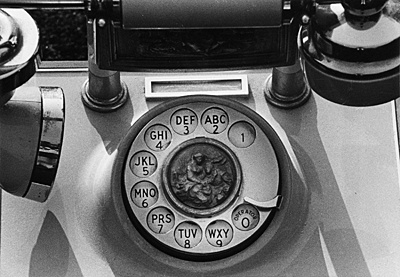All Nonfiction
- Bullying
- Books
- Academic
- Author Interviews
- Celebrity interviews
- College Articles
- College Essays
- Educator of the Year
- Heroes
- Interviews
- Memoir
- Personal Experience
- Sports
- Travel & Culture
All Opinions
- Bullying
- Current Events / Politics
- Discrimination
- Drugs / Alcohol / Smoking
- Entertainment / Celebrities
- Environment
- Love / Relationships
- Movies / Music / TV
- Pop Culture / Trends
- School / College
- Social Issues / Civics
- Spirituality / Religion
- Sports / Hobbies
All Hot Topics
- Bullying
- Community Service
- Environment
- Health
- Letters to the Editor
- Pride & Prejudice
- What Matters
- Back
Summer Guide
- Program Links
- Program Reviews
- Back
College Guide
- College Links
- College Reviews
- College Essays
- College Articles
- Back
Turn Off The Phone MAG
America has become dependent on cell phones. Since 1985, subscribership has increased from 92,000 to more than 137 million in 1999*. Cell phone use happens everywhere: in restaurants, schools, shopping centers and vehicles. Unfortunately, every time you look out the window of your car, there is a good chance you will see a driver using one.
These electronic devices have taken on new shapes and forms including hands-free phones and headsets, so drivers may feel a little more secure behind the wheel. According to the National Highway Traffic Safety Administration, at any moment 500,000 drivers are talking on handheld cell phones*. Yet, the use of any cell phone in a car is extremely dangerous, accounting for at least five percent of accidents.
In the United States, there have been many attempts to reduce the accidents by banning handheld cell phones while driving. The only successful bill was passed in New York*. Even though hands-free cell phones let drivers use both hands to drive, pressing buttons to dial, answering or ending calls can still be distracting and dangerous. Maybe this isn’t as hands-free as its name represents.
Of course, cell phones aren’t the only distractions drivers face. Eating, listening to loud music or even talking to passengers can reduce a driver’s concentration. The level of distraction of cell phones, though, is much higher than many other activities.
Obviously, a cell phone can be helpful when a driver is in danger. It can summon assistance if you’re stranded or involved in an accident. Drivers who are lost and need directions can make a quick call. There is a definite time and place to use a cell phone. The Automobile Association of America recommends that drivers ask a passenger to talk on the phone for them, but what if the driver is alone? Pull to the side of the road and then call.
Many people who have been affected by cell-phone drivers or use them when driving have different opinions on how to solve the problem of cell phone-dependent drivers. One agrees wholeheartedly with her state law, saying, “No means of communicating by phone (handheld or headset) should be used in a car. It’s very distracting. It should be outlawed, every bit of it.”* If a call is so critical to answer, why can’t the driver pull over or wait until they get home? Waiting to answer a call increases the safety of the driver as well as others on the road. According to The Washington Post, 2,700 accidents could have been prevented in six months if drivers had taken the time to park before talking.
Although many drivers believe they are skilled enough to drive 70 miles an hour while talking on a cell phone, they should reconsider. Instead of being selfish and risking lives , they should pull over to chat. They might even save their own life. c
*Works cited in this article can be found on TeenInk.com.

Similar Articles
JOIN THE DISCUSSION
This article has 1 comment.

0 articles 0 photos 12292 comments